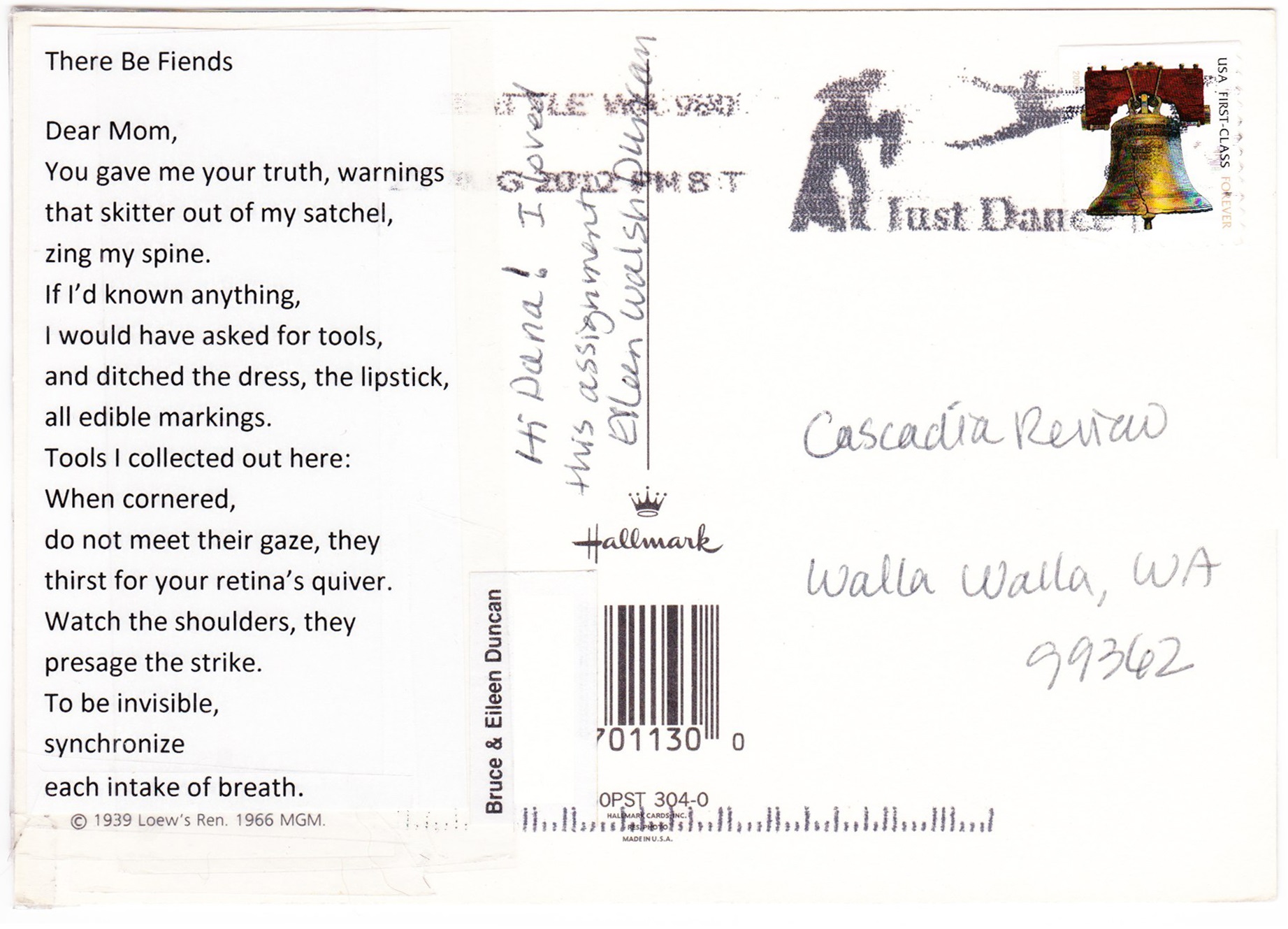by jennifer boyden
To the wind, the fullness of my mouth, juice
of my openness. To gnawing things, the osseous fists
of my bones’ rebinding. I want the earth
to accept my head. I have wanted to be held
by something my entire life, something that demands
all of me to answer back with holding.
To my gone children, all I cannot say without
my tongue. I call you in silence. You answer
in kind, and are counted. To birds, a nest of hair
and threads for the wobble-necked and pink-bodied.
I give the trust of grass to bear and raccoon,
to the crepuscular world who pauses before taking,
whose staring eyes give back the light of cars
as if to fix the breakage of air
before the great coming down upon them.
I have been broken. I
have been broken.
My walk from one place to this did not leave
a trail: I walked my route only once, and once-
forward is not enough to be remembered by grass.
My path is where I column into my own shape.
I give space to air with my leaving.
I give space to flying with my leaving.
I ask for nothing in return. I have received more
than I asked for, and worse: the world afloat; answers
at once and for nearly everything; animal bellies
untethered and dragging.
To the leaf, serration of my teeth.
To water, ice of my witnessing. It will need it.
To deer, asking and then emptiness before slaughter.
The grass should take my memory. But to the trails worn
by the escaping many, the mud of unknowing.
Here is what I know for now: worms,
I have loved you rightly
since I learned that dirt holds secrets blind and dependent
on whatever mercies we are willing to gift. I gave you names.
I counted your rings, measured your body-yawns
toward darkness. Worms, you are better than stars
because you are here.
Do you remember
how my mother stitched her people’s names
to my cuffs and then disappeared? The birds left
before the people did, but you, you worms, you stayed.
To the worms, my thanks. I ask you to make me rich
within yourselves: you stayed. While the earth
was fleeing itself, I named you, and you answered
to the place of my naming, and remain.
“The Lost Man Leaves a Will” was first published in The Declarable Future, © 2013, by the Board of Regents of the University of Wisconsin System. Reprinted by permission of The University of Wisconsin Press.
